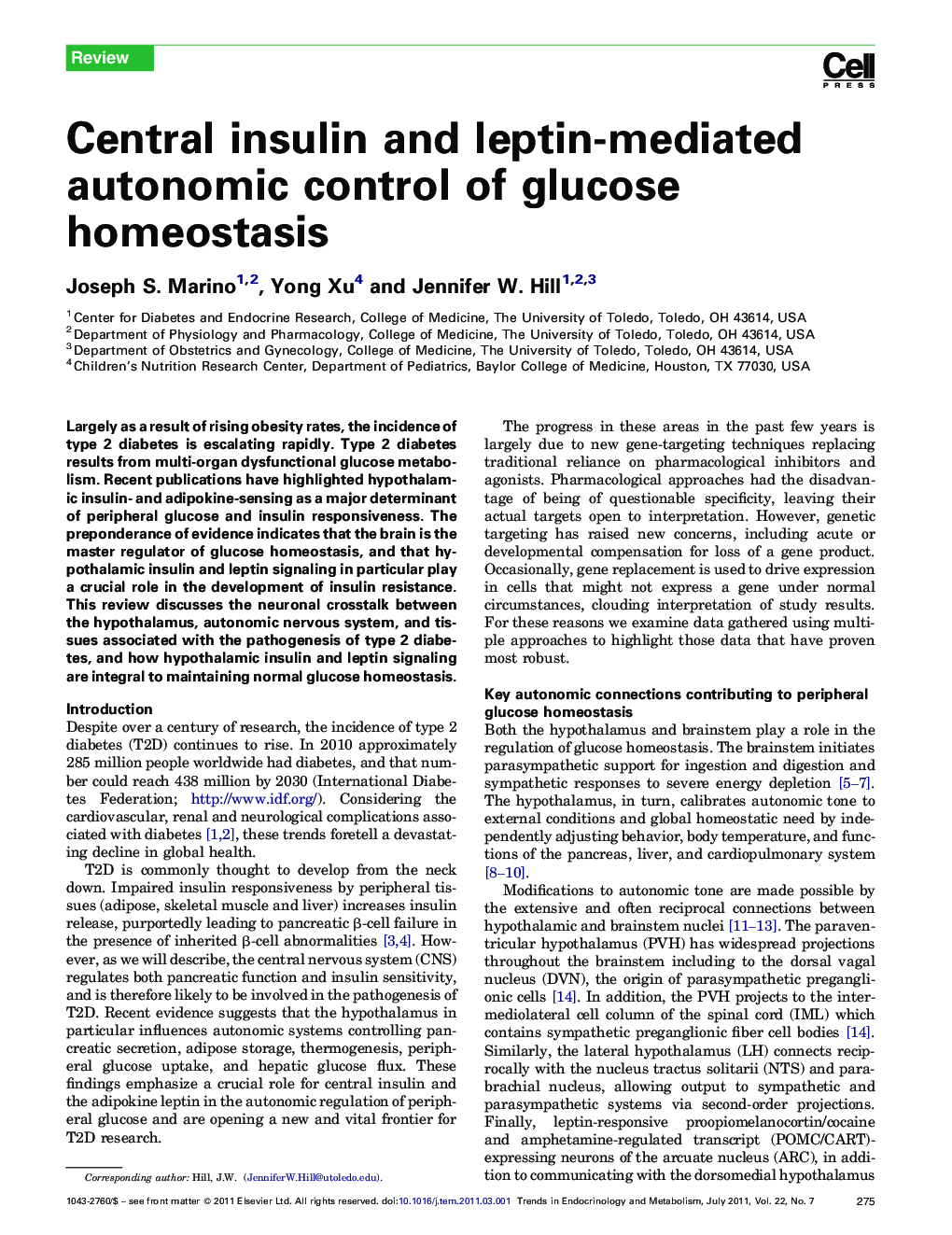| Article ID | Journal | Published Year | Pages | File Type |
|---|---|---|---|---|
| 2810981 | Trends in Endocrinology & Metabolism | 2011 | 11 Pages |
Largely as a result of rising obesity rates, the incidence of type 2 diabetes is escalating rapidly. Type 2 diabetes results from multi-organ dysfunctional glucose metabolism. Recent publications have highlighted hypothalamic insulin- and adipokine-sensing as a major determinant of peripheral glucose and insulin responsiveness. The preponderance of evidence indicates that the brain is the master regulator of glucose homeostasis, and that hypothalamic insulin and leptin signaling in particular play a crucial role in the development of insulin resistance. This review discusses the neuronal crosstalk between the hypothalamus, autonomic nervous system, and tissues associated with the pathogenesis of type 2 diabetes, and how hypothalamic insulin and leptin signaling are integral to maintaining normal glucose homeostasis.
